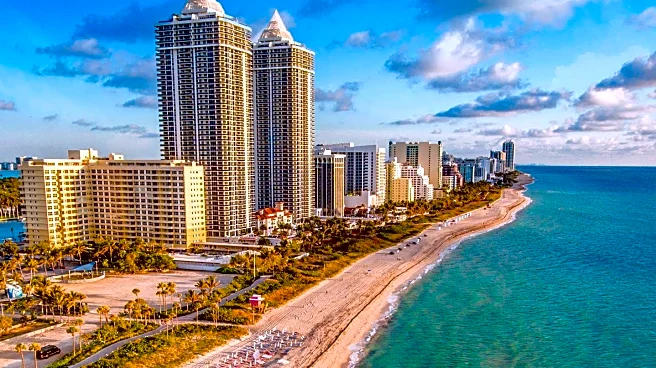What's Happening?
The Miami Seaquarium, a long-standing tourist attraction known for its dolphin and orca shows, has closed its doors. The closure follows decades of animal welfare complaints and an eviction notice from Miami-Dade County due to violations and structural deficiencies. The Seaquarium, which opened in 1955, was famous for being the filming location of the 1960s TV series 'Flipper'. Animal rights activists have long protested against the captivity of marine mammals at the facility, particularly focusing on Lolita, an orca whale who died recently. Plans are underway to redevelop the site into a new aquarium without marine mammals, along with a research center, shops, and restaurants.
Why It's Important?
The closure of the Miami Seaquarium marks a significant shift in public sentiment towards animal welfare and the treatment of marine mammals in captivity. This development could influence other similar attractions to reconsider their practices and potentially lead to stricter regulations in the industry. The planned redevelopment of the site reflects a growing trend towards more ethical and sustainable tourism practices, which could impact local businesses and tourism strategies in Miami.
What's Next?
Efforts to redevelop the Seaquarium site are already in progress, with plans for a new aquarium that excludes marine mammals. This transition may set a precedent for other facilities facing similar scrutiny. Stakeholders, including local government and animal rights groups, will likely continue to monitor the redevelopment process to ensure compliance with ethical standards.
Beyond the Headlines
The closure highlights broader ethical considerations in the entertainment and tourism industries regarding the treatment of animals. It may prompt discussions on the balance between entertainment and animal welfare, potentially influencing cultural attitudes and legislative measures.










